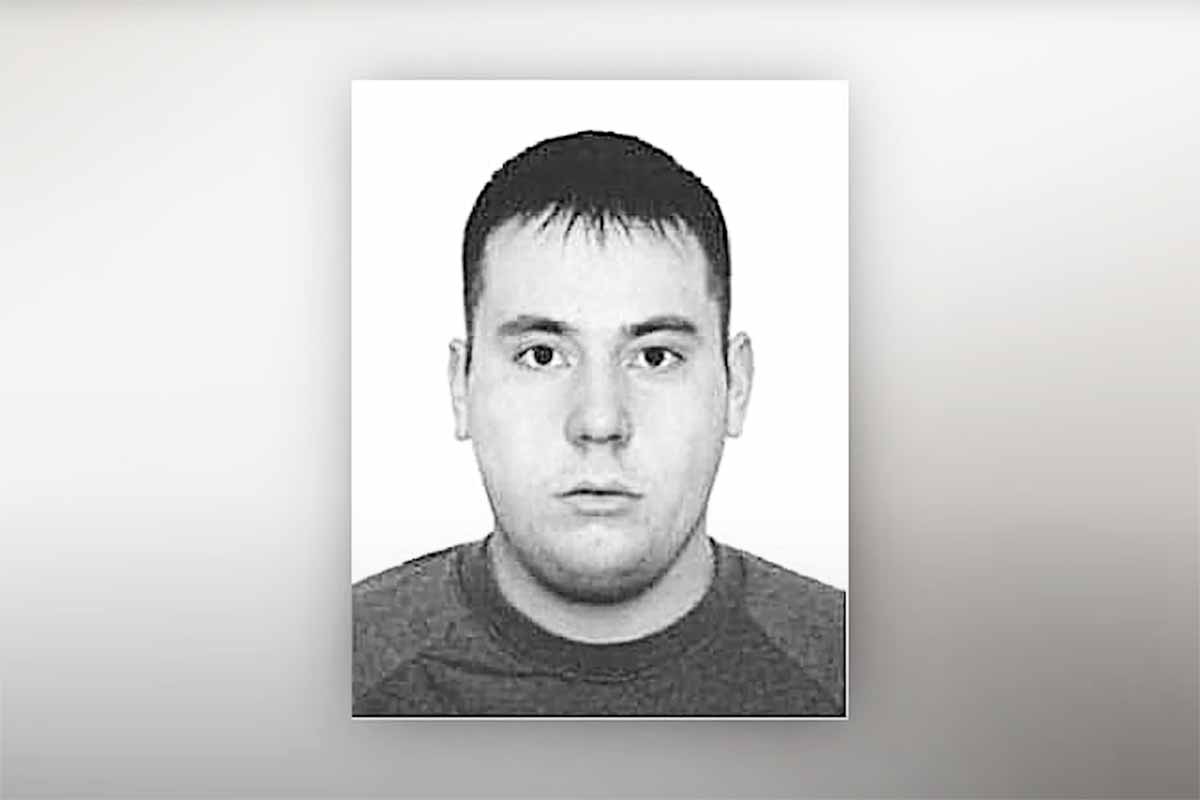Russian Soldier Convicted of Brutal Treatment
Man found guilty of looting, holding mock executions and threatening to cut off a civilian’s fingers with an axe.
A Russian soldier has been sentenced to 12 years in prison for the brutal treatment of a civilian during the occupation of Lukashivka, a village in the north-eastern region of Chernihiv, in an attempt to force him to pass information about the Ukrainian army.
Nikita Belozyorov, 28, is a native of Angarsk, in the Irkutsk region of south-eastern Siberia. Ukrainian investigators established that he was among the servicemen of the Russian Forces 74th Guards Separate Zvenigorod-Berlin Brigade who occupied Lukashivka, a village of nearly 400 people, on March 9, 2022. The occupying forces were driven out by the Ukrainian army on March 30.
During the three-week long occupation, Russian forces set up headquarters in the local church: soldiers lived in the villagers’ houses, reportedly looting, eating people’s food and taking their livestock.
According to the investigation, on March 12, 2022, the accused and three unidentified Russian servicemen entered the farm where Ihor and Yulia Samonenko lived with their three children. The victims’ names were indicated in the suspicion issued in July 2022. The Russians demanded Ihor Samonenko provide them with information about hidden weapons and the location of the Ukrainian military in the village.

Belozyorov hit the man on the head with the butt of his machine gun and then again several times on the back with the handle of his pistol. He then put the victim's hand on a bench, took an axe and simulated chopping off his fingers. He also threatened to shoot him, placing a gun to his head. During this ordeal he also demanded money and valuables and took 15,000 hryvnias ( 400 US dollars) and a Swiss knife.
The accused and his accomplices returned to the family twice. On March 13, they threatened them with machine guns and searched the house, taking various children’s items, including clothing. On March 15, the group again demanded cash and valuables; they took 350 euros (378 dollars) and a Samsung mobile phone, which according to the victim was worth 1,500 dollars. The theft qualifies as a violation of the laws and customs of war as the stolen items could not be used to achieve a war objective.
During the hearing, Ihor Samonenko told the court that he and his family, including their disabled child, hid in the cellar as fighting raged in the village. After the end of the battle, several Russian soldiers entered his farm: he recognised one of them from a photo of Belozyorov.
Ihor Samonenko indicated Belozyorov as the soldier who threatened and hit him, although he could not recognise the soldier’s accomplices from the photos presented to him in court.
Yulia Samonenko told the court that the Russian soldiers threatened to shoot her and the children and to throw a grenade into the cellar where they were sheltering. She also recognised the accused among the photos investigators showed to her.
The court also questioned a witness who confirmed that he had seen Belozyorov in the village. The testimony said that on February 24, the day Russia's full-scale invasion of Ukraine began, he and his family arrived at the house of his mother-in-law in Lukashivka.
After Russian troops entered the village, the witness and his son were taken for questioning. The Russians wanted to know whether they were soldiers, and the witness was made to kneel and threatened. After the Russians realised that they were civilians, they released both men, ordering them to stay in their house. The witness also recognised Belozyorov from the photo, but stated that he did not know what exactly happened to Ilha Somanenko.
The court files also indicated that another villager identified Belozyorov as the Russian soldier who, on March 9, 2022 entered her mother's house in Lukashivka. The accused reportedly checked everyone's documents, took mobile phones which he later returned broken, threatened the villager’s husband with a knife, and took him for questioning the next day .
Court files also indicated that, after the Ukrainian army regained control of Lukashivka, investigators inspected a house where the Russian military lived and found a document in Russian language, titled “List”. The document contained names, first names, patronymics, dates of birth and weapon numbers; it also had Belozyorov's last name and his data.
The investigation found that Belozyorov is in the Russian Federation where he was transferred in 2022.
During the pre-trial investigation in September 2022, the Desnian District Court of Chernihiv chose a preventive measure in absentia and detention without bail. The case was brought to court in October 2022 and in February 2023, the court decided to try Belozyorov in absentia. The accused did not appear before the court on summons.
The 12-year sentence is the maximum term under the criminal code’s Article 438, Part 1 violating the laws and customs of war. The Russian soldier’s defence lawyer has 30 days to appeal the sentence.
